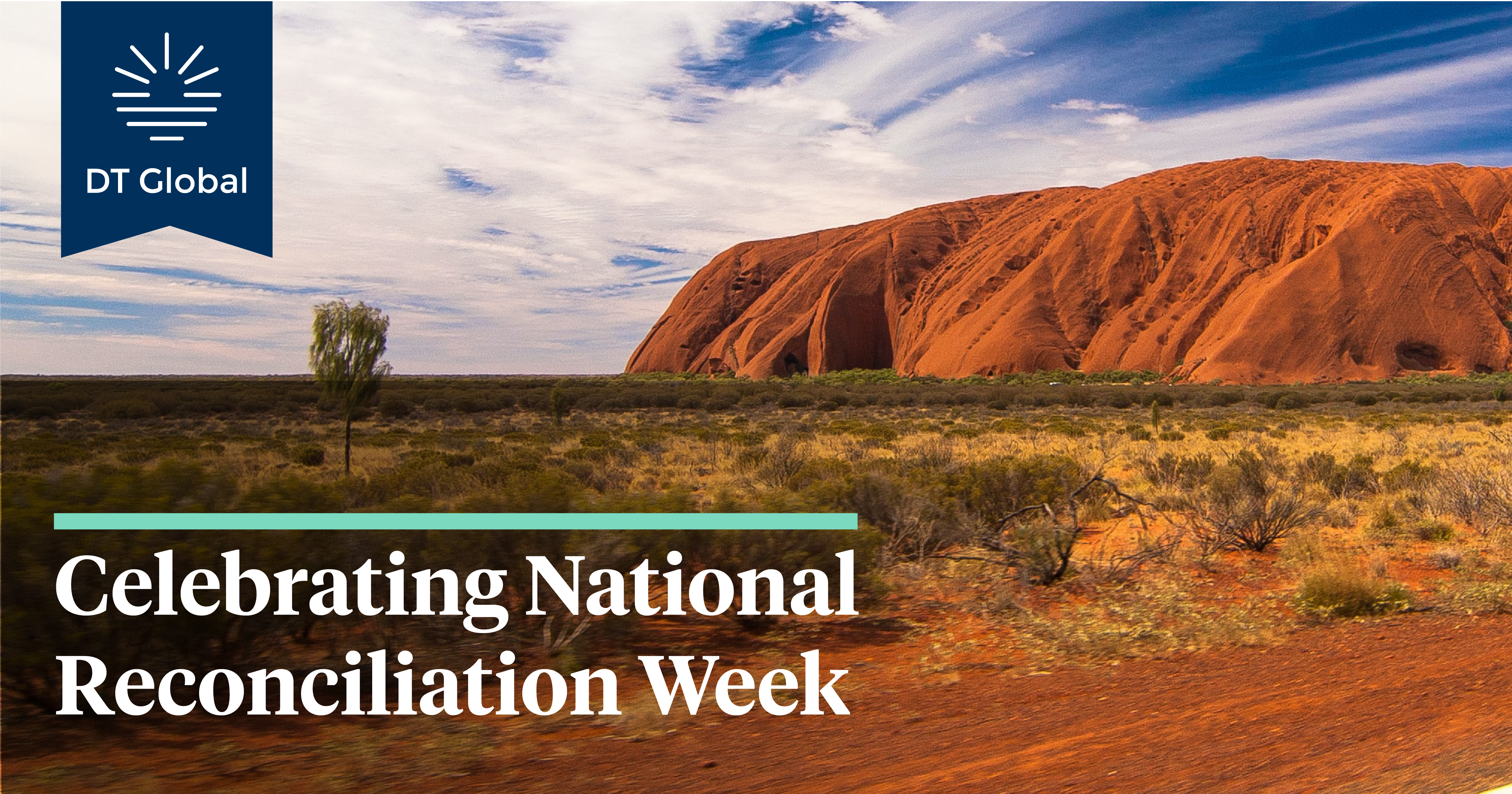
Each year, Australia marks National Reconciliation Week (NRW22) from May 27 to June 3 to explore how each of us can contribute to achieving reconciliation between Aboriginal and non-Aboriginal people in Australia. While NAIDOC Week in July of each year celebrates the history, culture, and achievements of Aboriginal and Torres Strait Islander peoples, Reconciliation Week focuses on strengthening relationships between Aboriginal and Torres Strait Islander peoples and non-Indigenous peoples which have been damaged by the devastating impact of Australia’s colonisation.
NRW22 arrives as DT Global has recently finished our first Reconciliation Action Plan (RAP) at the Reflect stage. The four RAP types—Reflect, Innovate, Stretch, and Elevate—allow organisations to continuously develop their reconciliation commitments.
As I catalogue the outcomes from our Reflect RAP, I see concrete achievements that DT Global’s Asia-Pacific office has made in strengthening our relationships with Indigenous Australians.
We have become an employment partner with CareerTrackers, a national purpose-driven organisation that supports pre-professional Indigenous university students and links them with employers to participate in paid, multi-year internships. Through CareerTrackers, we have welcomed two interns, one of whom has stayed with us in a part-time role while he completes his studies at the University of Adelaide.
We partnered with Kennelly Constructions, an Indigenous-owned business in Queensland, to bid for—and win a seat on—the Australian Aid program’s Capital Infrastructure Service Panel. This panel is a shortlist of companies to provide infrastructure services to Australia Aid.
But when we asked staff what the biggest difference had been from the introduction of our Action Plan, it wasn’t these individual milestones. Key for the theme of our first RAP—Reflect—I have seen a cultural shift within our organisation.
Project Manager Tina Coscia reflected, “There was a big shift in culture. With the RAP, people started talking about Indigenous history at work, sharing stories, taking the time to share what they’d learned through their own reading and experience. Reconciliation became a part of our thinking in everything that we do, from business development to project implementation.”
Niki Dowsing, Operations and Finance Manager on the Pacific Horticultural and Agricultural Market Access Program (PHAMA) Plus said that from her perspective:
“There was a noticeable cultural shift with the start of the RAP. We saw people adding country acknowledgements to their email signatures, and acknowledgements of country at staff meetings and monthly updates kept reconciliation top of mind.”
The largest challenge of our first year of RAP was around identifying Indigenous business partners, and our work in this area emphasised for us the barriers to entry for First Nations people across all industries. Despite rapid growth over the last decade, the rate of business ownership by Indigenous Australians is much lower than non-Indigenous Australians. First Nations businesses only represent between 0.6 and 0.8 per cent of the 2.1 million businesses in Australia nationwide, whilst 3.3 per cent of the Australian population were Indigenous at the latest numbers in June 2016. The lasting impacts of the destruction of communities and exclusion from financial, educational, and political systems mean that the Indigenous economy still faces the echoes of past policies, compounded by still present and persistent systematic racism.
“Inclusion is more than a matter of opening the door and saying ‘welcome,’” Notes Luke Marston, former Chair of DT Global’s Reconciliation Working Group. “It requires us to actively seek and pursue opportunities to change our systems and processes to promote reconciliation. Reflect helped us understand the length of the reconciliation journey and the need for coordination and mainstreaming into our business. Through our Reflect RAP, our business was forced to question what we thought we knew about how inclusive we were and how we contributed to a more inclusive Australia.”
As we work towards the endorsement of our next RAP stage of Innovate by the peak body (advocacy group) Reconciliation Australia, DT Global will take forward our lessons from the Reflect stage and further work on creating systems within our business which promote opportunities for Indigenous Australians.
We know that the action we are taking on reconciliation can make a change—starting with our workplace but also in our homes. Says Ms. Coscia, “After all of this conversation at work, I bring it home and I involve my kids.” I believe these actions will snowball over time to create a more equal Australia for all.